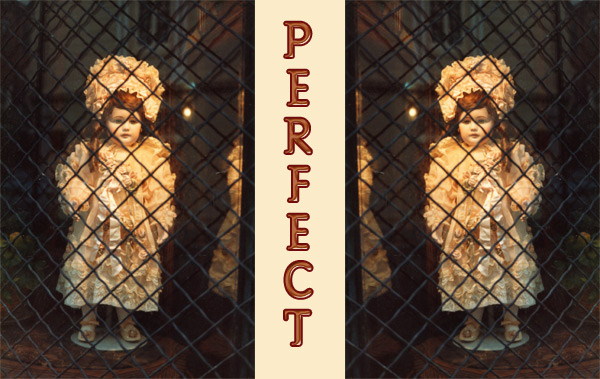On Being Perfect

The word perfect is another loaded and intimidating word like sin, which we explored in April. I’m sure we each have an inner idea of what being perfect looks like: here’s a very short list of the impossible goals and expectations I have:
If I were perfect
I wouldn’t offend or hurt anybody, or piss anybody off.
I wouldn’t screw up or make mistakes.
I would know what I was doing; I’d always be right.
I wouldn’t lose my cool—get angry, frustrated, impatient, or irritable.
I wouldn’t freak out when my dog disappears into the snowy woods in below-freezing temperatures.
I certainly wouldn’t have succumbed to a food addiction and depression in my early twenties.
I wouldn’t have missed that meeting—the one I was supposed to chair.
I’d be a Martha Stewart / Mother Teresa clone.
I wouldn’t need any help from anyone, or from God.
At some point I realized that in trying to be “perfect” I was essentially trying to dismiss and deny my humanity. I wouldn’t be a human being so much as what someone described as a “human should-being.” In a way, being perfect can be synonymous with being sinless (in the commonly understood moralistic definition of the word).
Another mistaken notion I had was that being perfect implied that I would be / should be, a very spiritual and saintly person. I fell prey to the belief that there was a split between earth and heaven, human and divine, matter and spirit. The two did not co-exist, and for many years my perspective was that it was better to be in the world of spirit, to be in “heaven” rather than on earth. Much of the struggle to be in both places at the same time I’ve recounted in Bicycling Home.
But here’s the good news. I discovered the word perfect comes from the Latin word meaning complete, entire, full-grown, mature. Aramaic scholar, Neil Douglas-Klotz describes the idea of being perfect as “knowing yourself fully.”
Kathleen Norris (author of Amazing Grace: A Vocabulary of Faith) says, “To be perfect, in the sense that Jesus means it, is to make room for growth, for the changes that bring us to maturity, to ripeness. To mature is to lose adolescent self-consciousness so as to be able to make a gift of oneself, as a parent, as teacher, friend, spouse.”
When I come to know myself fully…I see that I am a saint and a sinner. I have warts and beauty spots. To relate to one of Jesus’ parables, I have both weeds and wheat within. I am human and divine.
Accepting my humanity and accepting my divinity, and reconciling the two supposed opposites, has been like climbing an inner Mt. Everest. I would not have made the ascent without the guidance and help of wise teachers—primarily of the Christian, Jewish and Buddhist faith traditions. (See the Resources section under my Author page for more particulars.) These teachers were, and are, my life-journey Sherpas. It’s been a journey of major transformation and I would say cause for celebration. It’s wonderfully magical (and a relief) to know oneself to be perfect and imperfect at the same time!
Recently I was turned on to the music of Leonard Cohen. This particular stanza is from “Anthem,” and I cry a little every time I hear and see this on YouTube. I recognize the painful realities of life he sings of, and am simultaneously filled with hope.
Here’s to the Light!
Ring the bells that still can ring
Forget your perfect offering
There is a crack, a crack in everything
That's how the light gets in.
—“Anthem,” by Leonard Cohen
Anthem
About the photo: In 1984 I took a train from east to west coast. I stopped overnight in New Orleans. As I was walking down one of the French Quarter streets I came across this storefront window. I recognized the doll: “perfect” me! (Just a fun side note: The typeface in the photograph is called "Dead History.")
Back to Blog